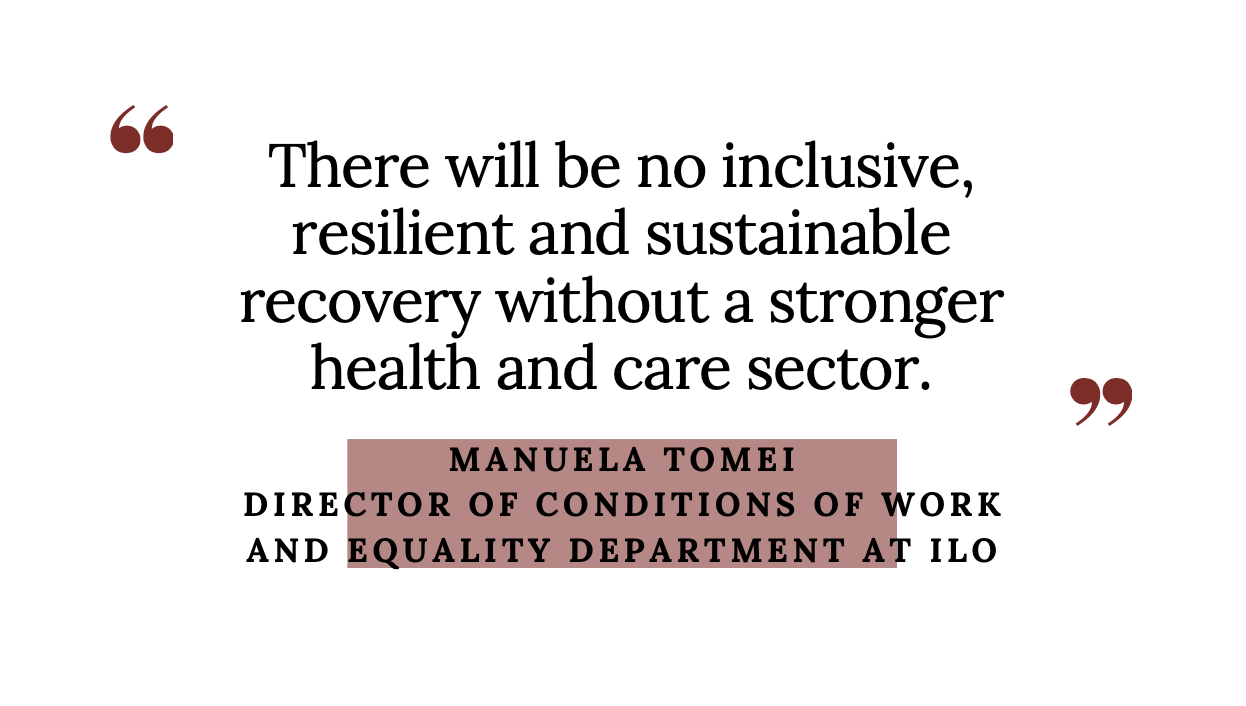The gender pay gap is still an issue facing women in many sectors across the world. A recent report has shone a light on the issue within the healthcare sector, finding that women here face a larger gender pay gap than in other economic sectors.
Women account for 67% of health and care workers worldwide, but earn on average 24% less than men in the sector, according to a new report by the International Labour Organisation (ILO) and the World Health Organisation (WHO).
"Women comprise the majority of workers in the health and care sector, yet in far too many countries systemic biases are resulting in pernicious pay penalties against them," Jim Campbell, WHO Director of Health Workforce, said.
Wages in the sector as a whole tend to be lower overall than in other economic sectors, which confirms previous findings that wages are often lower in women-predominant sectors.
Pandemic didn't see wages increase
Despite the importance of the role played by workers in the health and care sector during the Covid-19 pandemic between 2019 and 2020, only marginal improvements in pay equality were made, the report found.
This inequality is not inevitable, however. The report found that there are differences in the pay gap within different countries, meaning that there are ways to close the gap. Within a country, the pay difference is the strongest in higher-pay categories where men are overrepresented, such as surgeons.
The analysis concluded that the reasons for the difference in pay remain to a large extent unexplained by labour market factors such as age, education, working time and others.
Related News
- Mothers still suffer from Belgium's unjust parental leave system
- Brussels inequality exacerbated by Covid pandemic
- Belgian healthcare lacks international diversity of other sectors
"We cannot have better-quality health and care services without better and fairer working conditions, including fairer wages, for health and care workers, the majority of whom are women," Manuela Tomei, Director of Conditions of Work and Equality Department at ILO, said.
"The time has arrived for decisive policy action, including the necessary policy dialogue between institutions."


